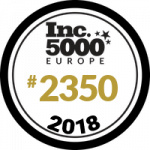Summary In the contemporary business environment, digital procurement is becoming increasingly popular and sought after by businesses around the world. The relationships …
What supply chain consulting firms can teach us about managing tariffs and trade regulations
Understanding the impact of tariffs and trade regulations
Tariffs are significantly influencing market dynamics. Tariffs aim to protect domestic industries, generate government revenue, and sometimes serve as tools in international trade negotiations. For businesses in Brussels, navigating the EU’s Common External Tariff is particularly important, as it governs goods entering the European single market.
For companies situated in Brussels, remaining vigilant to this constantly evolving framework presents both challenges and opportunities.
Challenges in navigating trade policies
The complexities of tariffs and trade regulations can pose challenges, including:
Staying updated |
Understanding rules of origin |
Cost management |
|---|---|---|
|
The EU's trade policies evolve frequently in response to geopolitical changes and economic conditions.
|
Determining the origin of goods is essential for tariff classification and benefits under trade agreements.
|
Non-compliance and lack of adherence to regulations can result in hefty fines, delays, or lost market access.
|
Staying updated
The EU’s trade policies evolve frequently in response to geopolitical changes and economic conditions.
Understanding rules of origin
Determining the origin of goods is essential for tariff classification and benefits under trade agreements.
Cost management
Non-compliance and lack of adherence to regulations can result in hefty fines, delays, or lost market access.
Strategic solutions for businesses
To succeed in this environment, businesses must adopt a strategic approach:
Expertise in regulations |
Supply chain optimisation |
Proactive planning |
|---|---|---|
|
Engage trade specialists or consult EU resources to remain informed about changes in policies and procedures.
|
Adjust sourcing and logistics management processes to minimise tariff impact and meet regulatory requirements.
|
Develop contingency management plans to address potential disruptions from tariff disputes or regulatory shifts.
|
Expertise in regulations
Engage trade specialists or consult EU resources to remain informed about changes in policies and procedures.
Supply chain optimisation
Adjust sourcing and logistics management processes to minimise tariff impact and meet regulatory requirements.
Proactive planning
Develop contingency management plans to address potential disruptions from tariff disputes or regulatory shifts.
Brussels stands as a pivotal hub for international trade, home to numerous global businesses and central to EU decision-making. For companies operating in this dynamic environment, understanding tariffs and trade regulations is crucial to maintaining competitive advantage.
Why Brussels businesses need expert guidance from supply chain consulting firms
Brussels is more than a capital city; it is the beating heart of European and global trade. As a hub of decision-making and commerce, businesses operating here must navigate a complex, rapidly evolving trade environment shaped by regulatory shifts, geopolitical developments, and the ripple effects of Brexit. Expert guidance is essential to successfully adapt and thrive in this landscape.
The city’s proximity to the institutions of the European Union, such as the European Commission and the Parliament, positions it at the leading edge of regulatory and policy developments. These institutions play a significant role in formulating trade agreements, customs regulations, and market access criteria for businesses operating throughout the EU.
The Brexit effect on supply chains
Brexit has transformed the trading relationship between the EU and the UK, disrupting Brussels-based supply chains and introducing new complexities.
Customs and documentation |
Tariff adjustments |
Alternative markets |
|---|---|---|
|
Increased amounts of paperwork, customs checks, and delays now impact cross-channel trade.
|
Understanding tariffs and rules of origin is key to maintaining cost-efficient operations.
|
Diversifying trade networks requires strategic planning to seize new market opportunities.
|
Customs and documentation
Increased amounts of paperwork, customs checks, and delays now impact cross-channel trade.
Tariff adjustments
Understanding tariffs and rules of origin is key to maintaining cost-efficient operations.
Alternative markets
Diversifying trade networks requires strategic planning to seize new market opportunities.
Navigating shifting trade agreements
The EU’s evolving trade agreements with global partners like the US, China, and emerging markets require businesses to understand these changes to minimise risks and maximise gains.
Stay compliant |
Optimise supply chains |
Leverage strategic opportunities |
Engage policymakers |
|---|---|---|---|
|
Ensure alignment with changing EU trade regulations to avoid penalties or disruptions.
|
Adjust sourcing, logistics, and trade routes to navigate new trade barriers and tariffs.
|
Identify growth areas in shifting trade landscapes, such as new agreements or markets.
|
Advocate for favourable trade conditions by leveraging proximity to EU institutions.
|
Stay compliant
Ensure alignment with changing EU trade regulations to avoid penalties or disruptions.
Optimise supply chains
Adjust sourcing, logistics, and trade routes to navigate new trade barriers and tariffs.
Leverage strategic opportunities
Identify growth areas in shifting trade landscapes, such as new agreements or markets.
Engage policymakers
Operating in Brussels offers unparalleled advantages, but it also demands navigating a challenging and dynamic trade environment. Businesses with access to expert guidance can turn these complexities into opportunities, ensuring resilience, growth, and a competitive edge in the global marketplace.
What is the role of supply chain consulting firms in managing trade challenges?
Supply chain consulting firms play a vital role in helping businesses navigate the complexities of modern trade, particularly in dynamic environments like Brussels. With its proximity to EU institutions and exposure to global trade networks, Brussels-based businesses face unique challenges, including fluctuating tariffs, evolving regulations, and cross-border trade risks.
Evaluating and adapting to changing tariffs and regulations
Supply chain consultants provide expertise to help businesses stay ahead of regulatory changes:
Policy monitoring
Procurement consultants track shifts in EU and global trade policies, offering timely insights into potential impacts.
Custom strategies
Tailored approaches ensure businesses can adapt operations to new tariffs, rules of origin, or compliance standards.
Cost optimisation
By identifying tariff reduction opportunities, such as through free trade agreements, consultants help minimise expenses.
Mitigating risks associated with cross-border trade
Cross-border trade introduces risks like delays, compliance breaches, and supply chain disruptions. Consultants help mitigate these challenges through:
Risk assessments
Identifying vulnerabilities in supply chains and devising management strategies to address them.
Trade facilitation
Streamlining customs documentation, optimising logistics, and ensuring compliance with requirements.
Diversification strategies
Advising on alternative sourcing or market routes to reduce dependency on high-risk areas.
How do Brussels-based businesses benefit from expert supply chain consulting firms?
The supply chain consulting market is projected to grow significantly, from USD 7.8 billion in 2023 to an estimated USD 44.4 billion by 2033. This surge underscores the increasing need for expert guidance in managing global trade complexities, particularly in strategic hubs like Brussels.
Reduced operational costs
Procurement consultants help optimise trade routes, leveraging Brussels’ central location to minimise transit times and tariffs. Businesses benefit from streamlined logistics, reduced shipping costs, and fewer delays, ensuring a more efficient and cost-effective supply chain.
Increased compliance confidence
Expert consultants ensure Brussels-based businesses align with EU and global standards, reducing risks of penalties or trade disruptions. By staying ahead of regulatory changes, companies can operate confidently in complex markets and focus on growth without compliance worries.
Stronger stakeholder relationships
Adhering to regulations demonstrates reliability and professionalism, strengthening trust with suppliers, customers, and regulators. Consulting expertise helps businesses navigate requirements, enhancing reputation and fostering collaborative, long-term stakeholder relationships.
Supply chain consulting firms equip Brussels businesses with the tools, insights, and strategies needed to thrive in an increasingly competitive global market. This expertise transforms challenges into opportunities for sustainable growth and success.
Navigate complex tariffs and trade restrictions with Kronos Group
Navigate complex tariffs and trade restrictions seamlessly with Kronos Group’s procurement consulting expertise. Our tailored solutions help Brussels businesses optimise supply chains, reduce costs, and ensure compliance with EU and global trade regulations. With our deep understanding of procurement and strategic insight into evolving policies, we empower your business to adapt quickly and capitalise on emerging opportunities. Trust Kronos Group to turn trade challenges into growth drivers, positioning your organisation for long-term success in a competitive global market.
Partner with Kronos Group to tackle complex tariffs and trade restrictions
Partner with Kronos Group to navigate complex tariffs and trade restrictions through innovative procurement strategies. Our expertise ensures compliance, reduces costs, and optimises your supply chain, turning challenges into opportunities for sustainable growth and operational excellence.
Fighting the effects of inflation with sourcing and procurement consultants
Stay up-to-date on the latest insights on procurement, finance, and project management.
Summary Strategic procurement has become a necessity in today’s business world and organisations try to remain competitive. Having the right procurement strategies …
Summary The world of consulting has been undergoing a massive transformation and management consulting jobs are experiencing the impacts of these changes. …
FAQ
A supply chain consulting firm specialises in optimising a company’s supply chain operations. They provide expertise in areas like logistics, procurement, and inventory management to enhance efficiency, reduce costs, and improve overall performance.
A supply chain management (SCM) consultant analyses and improves supply chain processes. They help businesses streamline logistics, adapt to regulatory changes, reduce risks, and implement cost-effective strategies for sourcing, production, and distribution.
Businesses can manage tariffs by leveraging trade agreements, optimising supply chain routes, and using consultants to ensure compliance with regulations and minimise costs.














